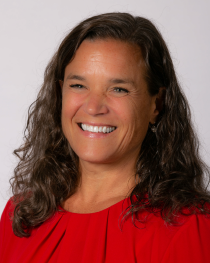Lessons from the COVID-19 pandemic have revitalized activity around community-led efforts to improve health outcomes and build community resilience. Across the country, state officials are prioritizing partnerships with community health workers (CHWs) as a key pillar in reaching low-income and underserved communities. Accumulating evidence of the efficacy and cost-effectiveness of CHW interventions in increasing access to care in these communities, improving health outcomes and bridging gaps in health disparities has catalyzed state policy in this domain.
To facilitate state-to-state exchange of best practices in CHW-related policymaking and investments, NASHP hosts a Community Health Worker Learning Collaborative.[1] There is broad agreement in the collaborative that sustainable funding approaches for CHWs involve diversifying, braiding, and blending funding sources — overarching trends can be found in NASHP’s state models tracker. Recent discussions have centered around Medicaid’s role. This brief provides an overview of recent developments in Medicaid State Plan Amendments (SPAs).
States can use SPAs to shape Medicaid benefits to address enrollee needs and reimburse for CHW services as part of a sustainable financing approach. With a SPA, benefits must be offered statewide and without targeting populations. Twenty or more states have also used Section 1115 demonstration waivers and Medicaid managed care organization (MCO) contracts for similar purposes — each of these approaches has opportunities and limitations.
Recent Developments Related to CHW SPAs
Currently, SPAs are in effect in 10 states, with five approvals in 2022 (Rhode Island, Louisiana, California, Maine, and Nevada). The first such SPA was approved in Minnesota in 2008, and at least six other states are actively developing or considering new SPAs at the time of this publication. Table 1 provides detailed information.
Table 1: Community Health Workers Medicaid State Plan Amendments
All use existing payment mechanisms (MCOs or fee for service) except as noted.
| State and Authority | Covered Services | Special Features |
California (2022) Preventive services: | Covered Services:
| No state-required CHW certification, but CHWs paid under Medi-Cal must possess a certificate of completion that demonstrates skills and/or practical training in core areas or meet work experience requirements. Payment via current MCOs, with cap rate adjustment, and fee-for-service. |
Indiana (2018) Other Practitioner Services: 42 CFR 440.60 |
Covered Services:
| No state CHW certification but CHWs paid under Medicaid must complete an approved CHW training or other training that address identified CHW competencies. Maximum of two hours per day and 12 hours per month per enrollee. |
Louisiana (2022) 42 CFR 440.60 42 CFR 447.200-205 |
Covered Services:
| Maximum of two hours per day and 10 hours per month per enrollee. Hourly rate for individual patient at $36.22. FQHCs are paid outside (in addition to) their prospective payment system (PPS) rate for other services. Eligible CHWs must have completed state-recognized training curricula approved by the Louisiana CHW Workforce Coalition or have a minimum of 3,000 hours of documented work experience as a CHW. |
Maine (2022) Social Security Act §1905(t) | Primary care providers (PCPs) must offer CHW services to assigned (attributed) patients starting in 2024 in order to maintain status as “Tier 2” or “Tier 3” in Primary Care Plus, an integrated care model. PCPs enrolled in Tier 2 and 3 must (in addition to other requirements):
| Population-based payments made monthly: base rates for Tier 1, $2.10 per member per month (PMPM); Tier 2, $6.30; Tier 3, $6.90, with adjustments for population group and risk categories (“generally well” and “complex”) of up to $8.75 PMPM. Also performance-based adjustments updated annually. |
Minnesota (2008) 42 CFR 440.60 | Covered Services:
Non-Covered Services:
| CHWs paid from Medicaid must complete an approved training using a standard curriculum, but the state officially does not certify CHWs. |
Nevada (2022) 42 CFR 440.70 and 42 CFR 440.130(d) | Covered Services:
| FQHCs (Prospective Payment System): authorizes a CHW contact as a billable encounter, so long as it does not take place on the same day as another billable encounter for the same patient. |
North Dakota (2012) 42 CFR 440.169 |
| CHRs must complete Indian Health Service standard CHR core training and TCM course. |
Oregon CHWs/Doulas (2012): 1902(a)(6) / 42 CFR 440.60 Doulas (2017): 42 CFR 440.130(c) |
| In order to receive Medicaid reimbursement, CHWs must be certified and registered with the Oregon Health Authority. A SPA is pending with CMS to increase rates for doulas. |
Rhode Island (2022) 42 CFR 440.130 | Covered Services
| Medical necessity includes clinical indicators, evidence of social drivers of health needs, and barriers to access, including “beneficiary expressed need for [CHW] support.”[2] As described in Rhode Island’s CHW Provider Manual, coverage is allowed for “collateral services” (necessary activity not performed in the beneficiary’s presence, but benefitting the specific beneficiary, e.g., time spent arranging transportation to a medical appointment). |
South Dakota (2022) 42 CFR 440.130 |
| Services must be provided in the community. Up to five units may be performed in a health care setting. Current unit payment rate: $30.89/30 minutes (98960); $15.45/30 minutes (98961, per patient in attendance); $10.81/30 minutes (98962, per patient in attendance). |
Note: Table does not include Health Homes SPAs, which have been created in 19 states (later terminated in eight states) to serve complex needs individuals with at least two chronic conditions (including behavioral health issues); one chronic condition and risk for a second; or a serious mental illness. It is believed that at least eight states authorized employment of CHWs in Health Homes, but at most one of those states required employing them. See www.medicaid.gov/medicaid/long-term-services-supports/health-homes/index.html.
For more detail about the content of each SPA, visit www.chcf.org/wp-content/uploads/2022/08/SummaryMedicaidStatePlanAmendmentsCHWs.pdf.
Trends across Existing and Proposed SPAs
Authorizing approaches: Minnesota uses regulatory authority under “other practitioner services” (42 CFR 440.60). Some more recent SPAs have used a 2014 “preventive services” rule change (42 CFR 440.130) allowing states to authorize payment for services by non-licensed individuals if such services are “recommended by” a licensed clinician. Some states have referenced both regulations. Maine is so far the only state to use authority under Social Security Act Section 1905(t), which defines primary care case management (PCCM).
Covered services: Current SPA language for CHWs generally defines up to three service categories: health education, health promotion and coaching, and care coordination or resource referral. However, states differ in the breadth of billable activity under these headings. Several states prohibit Medicaid payment for certain services, including advocacy, transportation, and assistance in applying for public benefits. Some states allow billing for CHW participation in team-based care/case management. Generally, an order, referral, or recommendation from a clinician is required to authorize a claim, and most include other conditions of medical necessity that require the recipient to have a diagnosis of at least one chronic condition. A few states have begun to include screening for social determinants of health needs as a finding that can authorize CHW services. Rhode Island (in its provider manual guidelines) treats certain criteria — such as inpatient admissions, emergency department episodes, and missed provider appointments — as an indicator of medical necessity. Minnesota does not require that a claim specify the patient’s primary diagnosis and allows use of the ICD-10 codes signifying SDOH (Z-codes). Maine does not explicitly define eligible CHW services, since they are not billed under fee for services, but their inclusion in a PCCM structure implies that they will play a supporting role in care management.
Payment approach and rates: Most current SPAs authorize fee-for-service billing, using existing claims processing structures to bill either the state or a Medicaid MCO. Billing is typically in 15- or 30-minute units of service. Rates range from an equivalent of about $32/hour to about $62/hour. Maine (approved in April 2022) is the first state to introduce a capitated payment system for primary care providers (adjusted for population and risk categories), under which they will be expected to engage CHWs in care management starting in April 2024. Some states are considering an alternate payment model but report often lacking data on cost and utilization needed for rate setting.
Billing codes: Most states use the same billing code family: CPT Code 9896x, which provides rates for services to individuals and in group settings. Rhode Island and Louisiana have introduced the use of HCPCS T-codes, and Rhode Island has also provided a rate adjustment for new patients.
Service limits: Most states have limits on the amount of billable time a CHW can spend with a patient/client/community member. The limits may be expressed in units of service per day, per month, and/or per year. Rhode Island offers an example of a state that has opted not to impose limits.
CHW qualifications and requirements: CMS does not require certification of individual CHWs for SPA approval, but the specification of CHW qualifications is required. There are states that recognize external CHW certification programs or certify CHWs through the state, a process that includes defining CHW qualifications. In those states that do not recognize certification, Medicaid agencies themselves define CHW qualifications — generally with education and/or work experience.
How federally qualified health centers (FQHCs) are handled: In a newer trend, California, Louisiana, and Rhode Island SPAs allow FQHCs to submit separate Medicaid claims for CHW services (outside the PPS billing process), while Nevada will make CHW-only encounters billable under PPS when the CHW encounter happens on a day when no other billable encounters take place.
Providing for participation by CBOs: In most states, community-based organizations (CBOs) employ a substantial number of CHWs. Many CBOs are not Medicaid providers. Some states with recent CHW SPAs, such as Rhode Island and California, have made extensive efforts to encourage and educate CBOs to become billing providers and learn the claims process. Maine offers PCPs the option to engage CHWs in “community-based services” though partnerships with CBOs under their new capitated payment system.
Key Considerations for States Developing and Implementing a SPA
The policy change process: In a few states, governors have issued executive orders that require seeking a SPA to expand reimbursement for CHWs. Legislative authorization is often required and could be embedded in budget or appropriations measures — as was the case for Minnesota, California, and Rhode Island. In several states, including Arizona, South Dakota, Illinois, Massachusetts, Maryland, and Nevada, legislative action on Medicaid reimbursement for CHWs has been bundled with related measures such as establishing credentialing or certification.
Engagement of CHW leaders: Learning collaborative participants agree that engaging CHWs in informing SPA development is key to establishing a successful program. This step can be challenging due to the highly technical content of Medicaid payment policy. Many states now have a CHW association or alliance that can provide representation. The National Association of CHWs (NACHW) offers state-level CHW leaders an introductory briefing on Medicaid SPAs. State approaches to gathering feedback from all the critical partners varies. Some states, such as Arkansas, Arizona, and Florida, start with selected representatives to work out an initial proposal and conduct more extensive outreach when concrete concepts are formed. A few states have initiated the process with a broad educational effort. States such as Rhode Island and California have scheduled multiple convenings/briefings to ensure wide attendance.
Newer trends in payment approaches: Several states have expressed interest in collecting sufficient data to inform actuarially sound rates for alternative payment models for CHW services that lend themselves to more flexible payment approaches. Recent proposals to shift Medicaid primary care funding to a capitated PMPM system in Massachusetts and Maine (all PCPs) and California (FQHCs only) may be informative.
Conclusion
With increased federal investment through agencies at the U.S. Department of Health and Human Services (including the Centers for Disease Control and Prevention, Health Resources and Services Administration, and Substance Abuse and Mental Health Services Administration), many states are working to align their Medicaid approaches to covering CHW services with a broader braided or blended financing strategy that can cover the full range of CHW activities while reducing reliance on short-term grants alone. As states seek sustainable funding approaches to effectively engage the CHW workforce, they may consider the trends in SPA approaches outlined here.
NASHP will continue to support state officials in peer-to-peer exchange of information via the CHW Learning Collaborative. State officials interested in learning more about NASHP’s state network on CHW policy should email Elinor Higgins.
End Notes
[1] This collaborative is made possible with support from the Robert Wood Johnson Foundation and with input from a steering committee of national experts including Carl Rush, partners at the Association of State and Territorial Health Officials and the National Association of Community Health Workers.
[2] Rhode Island’s definition of “medical necessity” appeared in all public documents before submission and later in the state’s provider manual but was removed from the final approved SPA document along with a number of other details.
Acknowledgements
This brief was coauthored by Carl Rush, principal consultant for Community Resources, LLC.
Carl Rush wishes to acknowledge that some of the background research presented in this paper was conducted under contract with the California Health Care Foundation, the Rhode Island Department of Health, and the South Carolina CHW Institute, and in collaboration with Theresa H. Mason, for the National Association of CHWs.
Support for this work was provided by the Robert Wood Johnson Foundation. The views expressed here do not necessarily reflect the views of the foundation.



